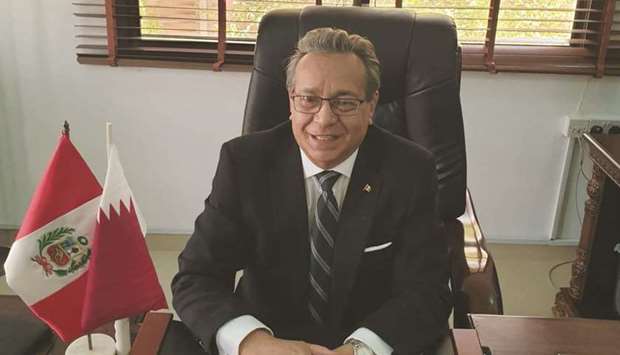There is no possibility in which the international community today can live together in peace and prosperity without human rights being adapted and fulfilled, without any distinction.
By the simple fact of existing, humans are entitled to basic rights and freedom. Human rights are defined as rights inherent to all human beings, regardless of nationality, ethnicity, language, religion or any other status. These rights include the right to life and liberty, freedom from slavery and torture, freedom of opinion and expression, the right to work and education, and many more. Without any exclusion, everyone on this planet is entitled to these rights; they are the simple rights that we have as human beings, universal and inevitable.
Throughout history, these rights have been achieved in a progressive way since ancient civilisations codified norms, such as the Code of Hammurabi of Babylon in ancient Mesopotamia, thousands of years ago, present-day known as Iraq.
In past centuries, the conception of many who believed that one should live according to “our conscience”, with greater rights until they choose to move to other geographically distant places, such as immigrating to North America from Europe and the urge to seek freedom and independence in the latter “with the sense of freedom and creation of a new society, in freedom; and consigned in the “Law of Laws”, as we qualify the Constitutions, for example the Virginia Charter of 1776, in which the “equality of rights” appears.
Later events also deserve to be mentioned, during the French Revolution in 1789, with the “Declaration of the Rights of Man and of the Citizen”, and the process of independence of our Latin American countries carried out with great efforts and with desires for justice and freedom in XIX century.
We cannot fail to name those who fought for the rights of their peoples and nations, who have served as an example, such as the revolution the last monarch of the Inca Empire, Tumac Amaru (1545-1572), Saladin (Al-Nasir Salah al-Din Yusuf ibn Ayyub), Mahatma Gandhi, Nelson Mandela, Martin Luther King, Sheikh Jassim bin Mohamed bin Thani, among others.
It is important to quote “The American Convention on Human Rights” (1978), “The African Charter” (1981), “The Convention for the Protection of Human Rights and Fundamental Freedoms” of Europe (1950), the Court European Union of Human Rights of Strasbourg (1959), as well as organisations related to the subject: Human Rights Watch, Amnesty International, UNHCR, etc.
Now, that our international community is basically constructed of modern states, where there is a population, a territory and a government, with a current and valid legal system; as the great Austrian jurist Hans Kelsen argued “human rights are essential for a better human life”.
The great actors with specific weights recognised in the world diplomatic board, and with that human capital reflected in their leaders, have achieved a high development in the defence of the human being in this aspect that is also included in international law that began in 1648 with the Peace of Westphalia, which recognises the formal existence of states, based on national sovereignty.
With the creation of the United Nations Organisation (ONU) in San Francisco, California, on October 24, 1945, after World War II, Human Rights appear as an important issue to highlight within the commitments of peace, international security between the states, which entail the promotion of friendship and social progress, accompanied by an improvement in life.
It is in this world organisation, in which the countries demonstrate their commitments to achieve the aforementioned objectives, and they are the ones that have achieved — I reiterated — great development in all aspects of their developed societies.
Within that same objective of the UN organisation, on December 10, 1948, that approved and issued the “Universal Declaration of Human Rights”, which establishes fundamental human rights, inseparable from human beings, without differences of nationality, residence, sex, ethnic origin, religion, language, or any other situation, while being interrelated, interdependent and indivisible.
Within the international arena, Qatar has been recognised by having recently been elected as a member of the UN Human Rights Council (HRC) with 182 votes for three years that was created on February 20, 2017, based in the city of Geneva and integrated by 15 members.
In consequence and according to our common target, Peru has been firm in supporting this international candidacy, as we are aware of the efforts that Qatar has made and is still making in this aspect, not only at the regional level, but also internationally.
It is good to mention the leadership (human capital), which certainly falls on the leaders, in this case on His Highness the Amir Sheikh Tamim bin Hamad al-Thani, and the entire team that accompanies him in his foreign policy, a true reflection of an internal policy designed for a better and stronger bilateral relationships with many other nations.
In this regard, we are confident that we have given this responsibility to a country which we recognise for its work and dedication to promoting initiatives that lead to the achievement of what the spirit of the aforementioned Declaration conceives for a better global co-existence.
The essence of respecting and insisting on the presence of human rights within any society promotes a better and a promising future for generations to come. Hence, it is considered a challenging process yet the outcome is as fruitful as we are witnessing in Doha — how organised a society Qatar is, with good faith and with tremendous generosity globally.

Jose Benzaquen
